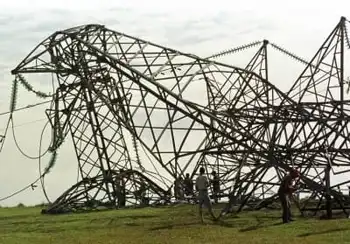GM adds four states to EV rollout list
AUSTIN, TEXAS - Texas, New York, New Jersey and Connecticut will join the states where General Motors will roll out its electric car, the Chevrolet Volt, GM CEO Ed Whitacre announced.
The debut list originally included Washington, D.C., California and Michigan. GM expects to quickly run short of Volts when the cars go on sale in November.
Austin will be the first Texas city where the Volt will go on sale because it is known as an environmentally conscious place, Whitacre said.
"This is a new technology. This is green. This is electric," Whitacre said. Other Texas markets will get the car shortly after Austin, likely in 2011, he said.
Whitacre drove up to a downtown Austin hotel in a Volt, which can travel 40 miles on pure-electric power. After that, the small gasoline engine will kick in to generate power for the electric motor.
The distance the car can travel will eliminate the "range anxiety" some consumers have with electric cars, Whitacre told an Austin chamber of commerce audience.
GM expects the Volt to sell briskly from the start, Tony DiSalle, the car's marketing director, said in a webcast.
"We understand that we'll be short early, but we'll continue to market the car," he said.
The automaker plans to produce 10,000 Volts by the end of the 2011 calendar year and an additional 30,000 in 2012.
Volts will be sold first in California, Washington, Austin and the New York City metropolitan area, DiSalle said. They'll arrive in Michigan, New Jersey, Connecticut and the rest of Texas and New York in 2011. The Volt will be available in all 50 states 12 to 18 months after its launch, DiSalle said.
GM will require Chevrolet dealers selling Volts to keep one in the store for customers to view and drive even if there's high demand. They also must have certified Volt specialists in sales and service, as well as a 240-volt charging station in the dealership, DiSalle said.
The Volt will have electric car competition shortly after it goes on sale. Nissan Motor Co. plans to start selling its Leaf all-electric car in December. The company says it will get up to 100 miles on a single charge. The Leaf has no backup engine on board and must be recharged after its batteries are depleted before it can travel again. But it also uses no gasoline.
The four-door hatchback Leaf will have a base price of $32,780, but it's eligible for a $7,500 federal tax credit, making it closer to $25,000. The Volt is expected to cost around $35,000, or $27,500 with the tax credit, although pricing has not been announced.
Whitacre said that to call attention to the rollout, the Chevrolet Volt will embark on a four-day "Freedom Drive" from Austin to New York.
Whitacre told the Texas audience GM has made progress financially over the past year.
"For starters, we're making money again. That's an important milestone for the new General Motors," he said.
General Motors Co. emerged from U.S. government-led restructuring last July. The automaker plans to conduct a public stock offering that's at the heart of the company's revival.
The U.S. Treasury Department has said it expects to sell some of its 61 percent stake in GM when the company goes public. The initial public offering could happen as early as October. It's expected to be among the largest initial public offerings in U.S. history.
GM has said the IPO may occur in late 2010 or early 2011, and Whitacre said he had no updates on when it will be. Despite a still sluggish economy, he said this is a good year for a public offering.
"We're aiming for it as soon as we can get there," he said. "We have some things that we have yet to do. I can't have a date, but I think this is a good year to do it if we can get everything done. I think this is a great year."
Related News

New Power Grid “Report Card” Reveal Dangerous Vulnerabilities
WASHINGTON - The U.S. power grid just received its “grade card” from the American Society of Civil Engineers (ASCE) and it barely passed.
The overall rating of our antiquated electrical system was a D+. Major power outages in the United States have grown from 76 in 2007 to 307 in 2011, according to the latest available statistics. The major outage figures do not take into account all of the smaller outages which routinely occur due to seasonal storms.
The American Society of Civil Engineers power grid grade card rating means the energy infrastructure is in “poor to fair condition and mostly below…




